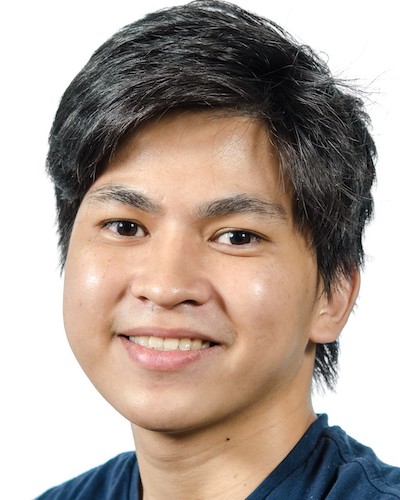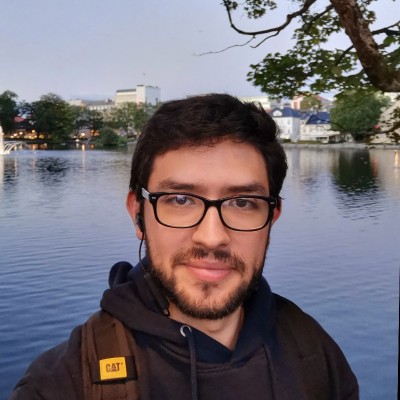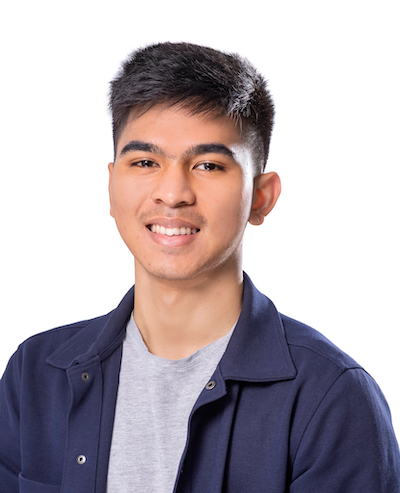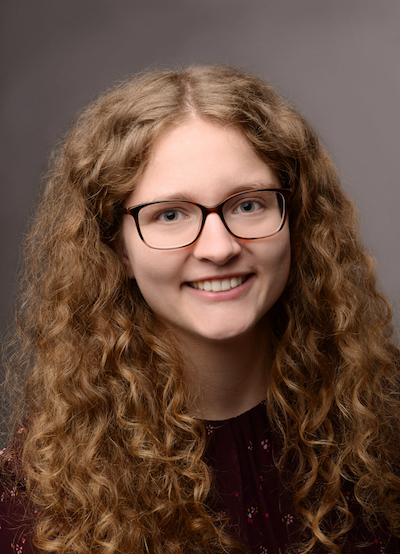Felix James Pacis

PhD topic: Online / Offline Deep learning models
| Affiliation: | University of Stavanger |
| Supervisor: | Tomasz Wiktorski |
| Co-Supervisor: | Sergey Alyaev |
| Associated Epic: | Deep learning for drilling models |
| Period: | 2021 – 2024 |
I am a Ph.D. research fellow in Machine Learning at the University of Stavanger as part of the DigiWells project. My MSc degree in Petroleum Technology, specializing in drilling and well engineering was completed at the University of Stavanger. I also have a BSc degree in Petroleum Engineering from Palawan State University.
The main objective of this project is to leverage Artificial Intelligence (AI) to build adaptive data-driven models for drilling and positioning wells. We want to keep models’ predictive capability, but reduce the training time, and improve their generalization ability. Simulated data from OpenLab’s high-fidelity drilling simulator will be utilized to build reliable machine learning models in the absence or in combination with real field data. Furthermore, we are interested in testing the models on real field data sets to ensure generalization. To achieve the objectives, our work focuses on:
- Supervised deep learning models, learned from simulated and field data, capable of meaningful probabilistic predictions. All models are in the direction for more efficient, safer, and cost-effective drilling. The main challenges here are data quality issues and generalization ability.
- Transfer Learning for building adaptive simulation models offline that can be adjusted based on available metadata and then tuned using the real-time data.
Luis Saavedra Jerez

PhD topic: Impact of the expected measurement quality and uncertainty while working on the engineering of a well
| Affiliation: | University of Stavanger |
| Supervisor: | Dan Sui |
| Co-Supervisor: | Eric Cayeux |
| Associated Epic: | Automated Drilling Engineering |
| Period: | 2021 - 2024 |
I got my bachelor’s degree in Petroleum Engineering and Natural Gas in Bolivia (2018). I received my master’s in drilling and well engineering at the University of Stavanger in 2021. During my master's, I was leading the winning DrillBotics team for the Virtual Rig part and was also awarded excellent academic performance at UiS.
The study focuses on analyzing the effects of uncertainty on parameters at the moment of making a drilling plan. Not knowing what will be found later carries some risks. Perhaps, considering another alternative plan will have a lower risk of finding further troubles. The combination of drilling models with deterministic, statistical physics, and some chaotic and/or non-holonomic models will be studied. The scope of the study considers the uncertainties involved in the directional drilling (where might the bit be?), geo-pressure window (what might the ranges of pressure in the formation be?), and drill-string vibrations (what might expect from the different vibrations in the drill string?).
Ressi Bonti Muhammad

PhD topic: Sequential decision analysis in drilling and geosteering
| Affiliation: | University of Stavanger |
| Supervisor: | Reidar Brumer Bratvold |
| Co-Supervisor: | Sergey Alyaev |
| Associated Epic: | Real-time decision making in drilling and geosteering |
| Period: | 2021-2024 |
I come from Indonesia. My BSc is from Bandung Institute of Technology in Petroleum engineering. I recently graduated and earned my master’s degree from NTNU, also in Petroleum engineering.
Develop and improve a decision support system (DSS) that provides optimization-based decisions under geological uncertainty during drilling and geosteering. One of the main goals of the project is to include reinforcement learning (RL) for the DSS. Instead of building the model ourselves, we would like to develop a decision-maker/agent by training it directly on the environment, or in this case the drilling operation in the subsurface. The subsurface during a drilling operation remains uncertain, especially ahead of the bit. We try to reduce this uncertainty using the Bayes’ theorem and its discrete approximations: Ensemble Kalman Filter, particle filter, etc.
Pauline Nüsse

PhD topic: Automatic control of sleeves for damping of drill-string vibrations
| Affiliation: | NTNU |
| Supervisor: | Ole Morten Aamo |
| Co-Supervisor: | Ulf Jakob Aarsnes |
| Associated Epic: | Distributed Drilling Control |
| Period: | 2021-2024 |
For my bachelor's and master's, I studied Computer Science in Engineering at the University of Augsburg in Germany. Here I mainly worked with modeling, calibration, and control of cable-driven parallel robots.
The main objective of my thesis is to actively control the torque-reducing sleeves developed in this epic to allow a more efficient way of drilling. The goal is to reduce vibrations, minimize energy consumption and ensure cutting transport. Several sleeves can be placed along the drill string at the positions with the largest side forces, to maximize the reduction of mechanical friction along the wellbore. The distributed nature of the sleeves must be taken into account when developing a control scheme. Here several scenarios are possible, depending on how many sleeves are used, where they are placed, how/if they can communicate with each other, and what measurements are available.